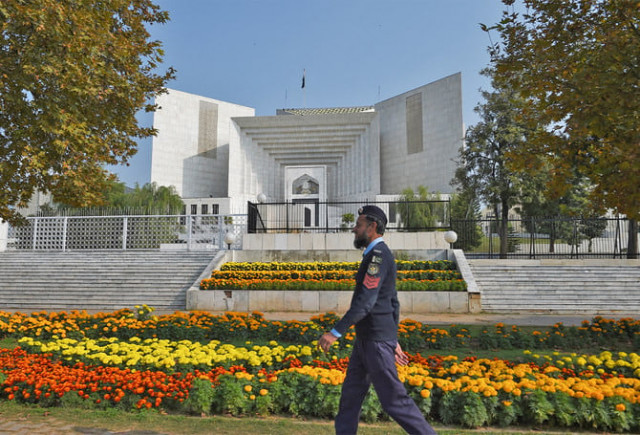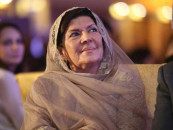Govt trying to have 'sins' forgiven through NAB amendments, says Justice Ahsan
Apex court hears PTI petition against NAO changes; says bill should have been opposed in Assembly not court

Supreme Court's Justice Ijaz ul Ahsan, while listening to Pakistan Tehreek-e-Insaf (PTI) chief Imran Khan’s petition against the accountability law amendments on Friday, remarked that the government was trying to get its 'sins' forgiven through the tweaks.
Former premier Imran Khan had challenged the amendments to the National Accountability Ordinance, 1999 in the Supreme Court, arguing that the tweaks would pave the way for public office holders to get away with white-collar crimes.
The PTI chief has filed a constitutional petition under Article 184 (3) through renowned lawyer Khawaja Haris.
During the hearing, the apex court sought written responses from the National Accountability Bureau (NAB) regarding the amendments.
Read Senate okays amendments to NAB law
Khawaja Haris stated before the court that the current amendments were a “violation” of the constitutional mandate, maintaining that the court could annul the amendment if it was in conflict with the basic constitutional structure.
Justice Mansoor Ali Shah asked if the independent judiciary was included in the basic structure of the constitution, and which authority of the judiciary had been reduced by the NAB amendments.
Justice Ijaz ul Ahsan, stating his position, said that the powers of accountability have been reduced by NAB amendments. He questioned if accountability was a part of parliamentary democracy.
The PTI counsel replied that accountability was necessary for good governance, and that "good governance could not be imagined without accountability". He added that pending cases had become ineffective due to NAB amendments.
Justice Mansoor Ali Shah stated that the petitioner was asking to bring the amendments to a certain level and asked if they would return to form NAB if the government abolished it in the future.
Khawaja Haris said that cases pertaining to illegal use of powers and assets in excess of income had ended due to the NAB amendments.
Chief Justice Bandial stated that accountability was necessary in cases of assets in excess of income, however, people in small housing societies were arrested in the case of one or two plots.
Justice Mansoor Ali Shah remarked that when a project failed, authorised government officers were arrested.
“If the arrests continue, which officer will take any decision for the country?” he questioned, adding that the NAB amendments had not eliminated any crime and arrests could not be made on decision-making.
Khawaja Haris replied that after the amendments, all the cases would be removed from the accountability courts.
Read More: PTI moves JCP against CEC, ECP officials
Justice Mansoor Ali Shah said that it was important to respect the laws passed by the Parliament and that the amendments did not appear to conflict with any constitutional provision.
Justice Ijaz ul Hasan maintained that the evidence received under the agreement on legal assistance rights from abroad in the NAB amendments was inadmissible.
“If there is a case of violation of fundamental rights in this case, then it will be heard, otherwise the jurisdiction of the court will not be formed,” he said adding that the current government may have tried to get its sins forgiven but the next reigning party would do the same.
He stated that if public money was used for corruption, it would be a violation of fundamental rights and could then be reviewed under the rules laid down in the Constitution.
Justice Shah questioned why the PTI did not oppose the bill in the assembly if it believed it to be wrong.
“The structure of the law should be debated in the assembly instead of the court,” he said.



















COMMENTS
Comments are moderated and generally will be posted if they are on-topic and not abusive.
For more information, please see our Comments FAQ